Content Sections
By Rob Verkerk PhD, executive & scientific director, Alliance for Natural Health International and USA
Listen to the article
Read the article
Last weekend, I stood on the shoulders of giants— for the second consecutive year, we were at the Luton Hoo for the Profound Health Summit. This year, both my colleague Meleni and I were speakers, and it was both an honour and humbling to be around medical pioneers and mavericks to whom we owe so much for their role in developing health interventions that work better, for more people, more of the time. But, like anything that attempts to buck the status quo, huge forces do all they can to keep these developments away from the public eyes and ears.
In this Part 1 from the summit, I’ll give you some ‘profound’ insights from some of the speakers, and will offer you more in Part 2 next week.
Devilish eggplants
You’ve been noticing a growing scaly, reddish patch with raised edges forming on your cheek that you know has had more than its fair share of sunlight over the years. You go to the doctor and, following an excision biopsy, it’s confirmed as a basal cell carcinoma, by far the most common form of skin cancer. The doctor refers you to a dermatologist who wants to proceed with the gold standard treatment, surgical excision—also known as Mohs surgery.
Doctor knows best, right? You proceed, and the operation was claimed a success. But, frankly, you’ve been mutilated; scarred, quite literally, for life.
Enter Professor Bill Cham, the Profound Health Summit opener at the Luton Hoo last weekend. He is an internationally acclaimed, Vanuatu-based pharmacologist who helped bring Curaderm to the global market, despite it still being unknown to the majority of dermatologists and skin cancer specialists.
Curaderm BEC5 (BEC stands for Dr Cham’s initials) is a topical cream containing extracts from a member of the nightshade family, Solanum linnaeanum (formerly Solanum sodomeum), known as the devil’s apple or Sodom’s apple. The nightshade family includes nearly 3,000 species including aubergine (eggplant), tomato, potato, peppers (capsicum), tobacco and even the decorative petunia. The cream contains a high concentration of solasodine rhamnosides, which are secondary plant metabolites, also present in significant amounts in eggplant, that protect solanaceous plants from bacteria, fungi, viruses and insects.
Dr Cham’s interest in the devil’s apple came about during a visit to Australia where he witnessed cattle rubbing their eyes against the devil’s apple plant.
Apply Curaderm daily to non-melanoma skin cancers, either the very common basal cell carcinoma or the less common squamous cell carcinoma, and you are highly likely to witness the disappearance of the cancer in a few weeks – with no scarring. It may look worse on its journey to recovery, but that’s what happens when the cancer cells are forced to commit suicide (apoptosis) and get pushed out of the deeper layers of the skin to the surface.
There may be no other cancer treatment that has such a high success rate against its target cancer type. It’s natural, and there are no side effects associated with its use. It is utterly reprehensible that the cancer establishment has not seen fit to replace the butchery of Mohs surgery for this natural cure, or at least allow it to co-exist.
It’s lack of acceptance in mainstream oncological and dermatological circles is partially down to it not having been registered as a mainline oncologic drug. In the EU, for example, it is registered, but as a Class I medical device for the indication of topical treatment of keratolytic action. But like all non-standard, and particularly natural therapies, the drug company-captured dermatological associations and cancer charities go out of their way to suppress information about such treatments, or denigrate them. Dr Cham told us that Curaderm works out at around 10% of the cost of Mohs surgery—so guess who would be set to lose if Curaderm got the formal seal of approval? More than that, Bill Cham’s 35 year journey working with these solanaceous extracts is continuing to help expand the horizons for these remarkable neoplastic agents with emerging evidence of anti-cancer activity on 17 other types of cancer cell, from leukemia, to liver, lung, breast and prostate cancers.
After having seen the amazing results of Curaderm-BEC5 on keratoses and carcinomas on my mother and several friends, I was honoured to finally meet Dr Cham.
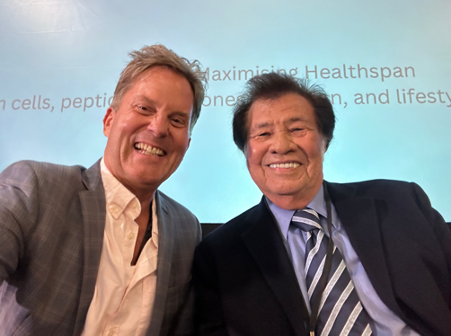
Sharing the Profound Summit stage at the Luton Hoo, Saturday 25th May 2024.
Taking off to Turkey
Phil Micans, the pharmacologist who founded International Antiaging Systems (IAS) and Profound Health, also the host and MC at the Profound Health Summit, has a remarkable ability to draw in the luminaries behind some of the most advanced, often natural, treatments. Last year, it was professor Vladimir Khavinson, the distinguished gerontologist who pioneered peptide bioregulators as epigenetic agents that have incredible capacities to reverse ageing and enhance the body’s intrinsic capacity for repair and replacement. Tragically, Dr Khavinson passed on 6 January this year, and we observed 1 minute’s silence in his honour.
It was a great pleasure to meet another big hitter in the cancer world, Dr Abdul Slocum from ChemoThermia Oncology Center in Istanbul, Turkey. Especially following the incredibly positive recent experience there of a very close friend who was diagnosed last year with colon and liver cancers.
ChemoThermia is a pioneering clinic in Turkey that specialises in providing advanced cancer treatment options. The company is known for integrating conventional and complementary therapies into highly individualised plans to treat cancer and support the restoration of health, focusing on highly individualised treatment plans for their patients. Their services often include targeted conventional treatments coupled with hyperthermia, immunotherapy and nutritional support.
Not only do they take private money and deliver life-changing treatments for cancer patients who’ve often given up all hope after mainstream oncology itself has given up and passed them off to palliative care, Dr Slocum and his medical colleagues, Prof Bulent Berkarda MD and Associate Professor Mehmet Salih İyikesici MD also engage in research in order that they can offer the best possible outcomes to their patients.
Why such integrative interventions and participatory clinical research have not become standard of care and practice is only down to the massive resistance from the cancer establishment. One that grew at breakneck speed after Richard Nixon declared a ‘war on cancer’ in 1971 and was first comprehensively exposed just 20 years later by Ralph Moss PhD in his ground-breaking book, The Cancer Industry: The Classic Expose on the Cancer Establishment (1991, The Moss Report).
Reversing your biological clock
Hannah Went from TruDiagnostic gave us the inside track on the work her company is doing on the second and third generation epigenetic clock assays they do to assess not only your true biological age, but also your all-important pace of ageing. Put both of these metrics together and you’ve got probably the most accurate way of determining if your current dietary, lifestyle and health regimen is working to plan.
The more we understand about the individuality of response, the more we recognise a cookie-cutter, one-size-fits- all approach can be counter productive for many. While they may work for those lucky few, they can have exactly the opposite effects on others, working to the detriment of their long-term health.
If you’re data driven, and you’re keen to turn back the clock on your biological ageing process, you couldn’t do much better than running two of TruDiagnostic’s key assays: TruAge COMPLETE and TruAGE PACE. Find out more here.
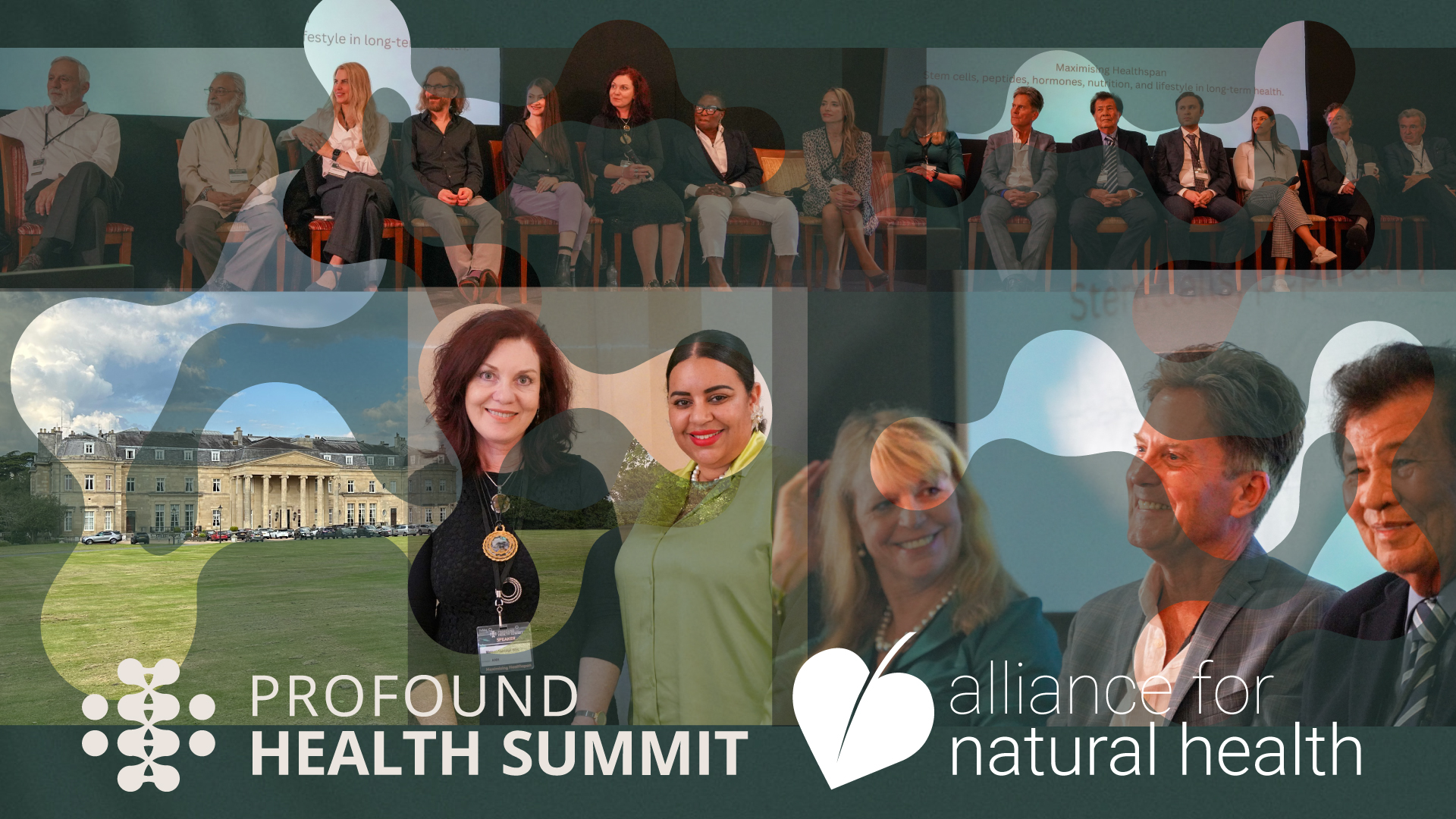
Micronutrients
Next on was me. My talk was designed to help the audience recognise why society at large often gets nutrition so wrong, because of our obsession with macronutrients, calories and essential micronutrients in the form of a limited clutch of vitamins and minerals.
As it happens, we suffer, in the industrialised world, many more long-term health challenges because of deficiencies in amounts of essential micronutrients and a massive array of micronutrients, especially plant-derived but also organ meat-derived ones, that are classified in nutritional circles as ‘conditionally essential’ or ‘non-essential’.
By looking at nationwide dietary surveys (the UK National Diet & Nutrition Survey and the US National Health and Nutrition Examination Survey) I was able to show where massive micro-nutritional gaps exist for millions, and that these can only be countered by changing what and how we eat, and—given the simplification and industrialisation of modern diets—through supplementation.
A slide from my presentation, below, identifies some of the clearest micronutritional gaps for most people, and the health-promoting processes (left column) for which they are essential, despite still being widely ignored by the dietetics profession.
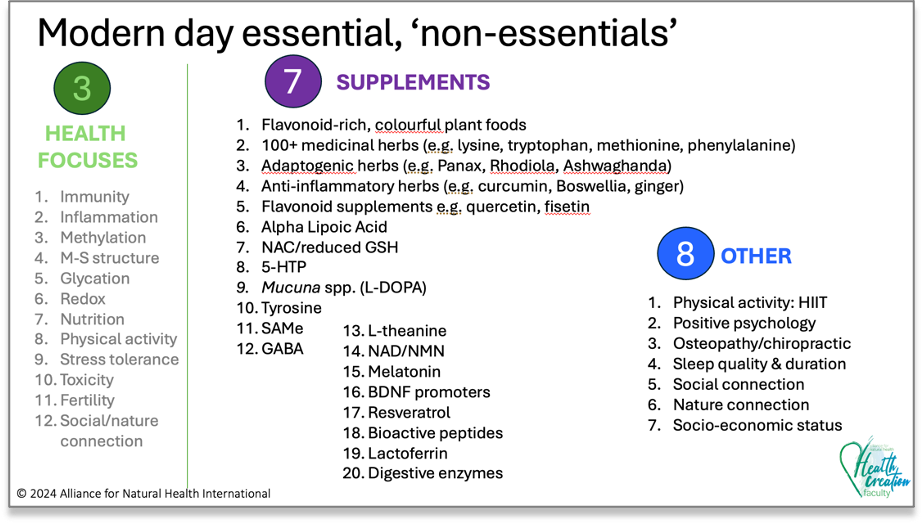
Is there more to menopause than bioidentical hormones?
Dr Wendy Denning, well known for her work supporting women through menopause and co presenter of the Successful Channel 5 TV Series, “The Diet Doctors Inside and Out”, reminded us that statins don’t work as well in women as they do in men. Yet, women are at higher risk of cardiovascular disease (CVD) if they go into menopause in their 40s, than women who start in their 50s. The answer is to address whole person health and reduce risk factors across the board.
She’s a great proponent of Bioidentical Hormone Replacement Therapy (BHRT), but cautioned that for the best effects, it needs to be started in the first 6 years of menopause to offset the development of such diseases of ageing such as cardiovascular disease (CVD), type 2 diabetes, osteoporosis and dementia. However, Dr Denning did caution that BHRT is only effective if a woman’s health is assessed fully and it is properly individualised. It’s not a case of taking a standardised BHRT protocol and expecting it to be your magic pill that will see you unscathed through menopause.
Of special note was her list of risk factors for breast cancer that don’t make the headlines where natural and integrative medicine practitioners can really make a huge difference clinically. The following are relatively easy to correct with the appropriate nutrition and lifestyle changes that are within reach of everyone when given specific and individualised guidance.
- Hypothyroid (low thyroid function)
- Metabolic syndrome, elevated blood glucose, diabetes
- Vitamin D deficiency
- Iodine deficiency
- Alcohol consumption (more than 5 units a week of alcohol will increase risk of breast cancer and impact the brain, particularly for women in menopause)
- Toxic chemical exposure
- Excess of unhealthy fats and deficiency of healthy fats
- Smoking
- Sedentary lifestyles
- Selenium deficiency
Obvious to some, but ignored by many.
Peptide bioregulator trials in the US
I was gagging to hear how lawyer turned medical researcher Dr Bill Lawrence’s trials using Khavinson peptides were going with doctors, which he briefed us about at last year’s Profound Health Summit.
Dr Lawrence, who has a Jurisprudence Degree (UCLA-Law), an MS in Psychology and a Ph.D. in Nutrition, has since 1990, been focused on slowing and reversing human biological ageing. He has developed numerous science-based protocols focused on optimal ageing for health professionals and individual clients.
In his presentation, he was quick to say that the ‘hallmarks of ageing’ (proposed in 2013 and updated in 2023) were not causes of ageing, but rather consequences. Therefore, targeting these hallmarks with interventions misses the point if your aim is to address the underlying causes of the processes of degeneration associated with getting older. He asserted that he and Prof Khavinson were entirely agreed that the focus for anti-ageing or health promotion should be by addressing the main culprit, namely DNA damage. As we age, DNA methylation (gene expression) and our DNA repair system start to break down and our telomeres (the ends of our chromosomes that shorten with each cell division) start to shorten more rapidly as a result of this accumulated damage in our genetic code.
Given his reliance on evidence both as a lawyer and a scientist, Dr Lawrence provided substantial evidence showing that peptide bioregulators promote organ or tissue regeneration (e.g. reversing macular degeneration and diabetic retinopathy), reduce mortality (e.g. 88% mortality reduction over 8 years using only pineal and thymus peptides vs control), and activate telomerase and DNA methylation (e.g. 42% increase in somatic cell replication with peptides).
He then moved on to update us on his two major, US-based studies with Khavinson peptides. The results have yet to be published given they are ongoing, but the results are groundbreaking without doubt. If there was an overwhelming finding it was that nearly every subject, mainly medical doctors or other health practitioners, have experienced benefits in terms of biological age reversal, as measured through epigenetic clocks, notably TruAge (above). What he calls “the gap”, the difference between chronological and biological age, continues to increase in the vast number of participants, with the passage of time. While this gap averages 4.49 years for each 2 years of use, these effects are dramatic when you compare these reductions in terms of reductions in all-cause mortality.
Dr Lawrence took us through a series of individual case studies, including that of Australian, ex-Olympic snowboarding athlete, Torah Bright.
You can find out more about Bill Lawrence’s work in the following videos.
Interview with Johnny Adams (May 2024)
Interview with Lisa Tamati (September 2023)
Stay tuned, and there’ll be more to come in Part 2 from the Profound Health Summit next week.
>>> If you’re not already signed up for the ANH International weekly newsletter, sign up for free now using the SUBSCRIBE button at the top of our website – or better still – become a Pathfinder member and join the ANH-Intl tribe to enjoy benefits unique to our members.
>> Feel free to republish - just follow our Alliance for Natural Health International Re-publishing Guidelines
>>> Return to ANH International homepage




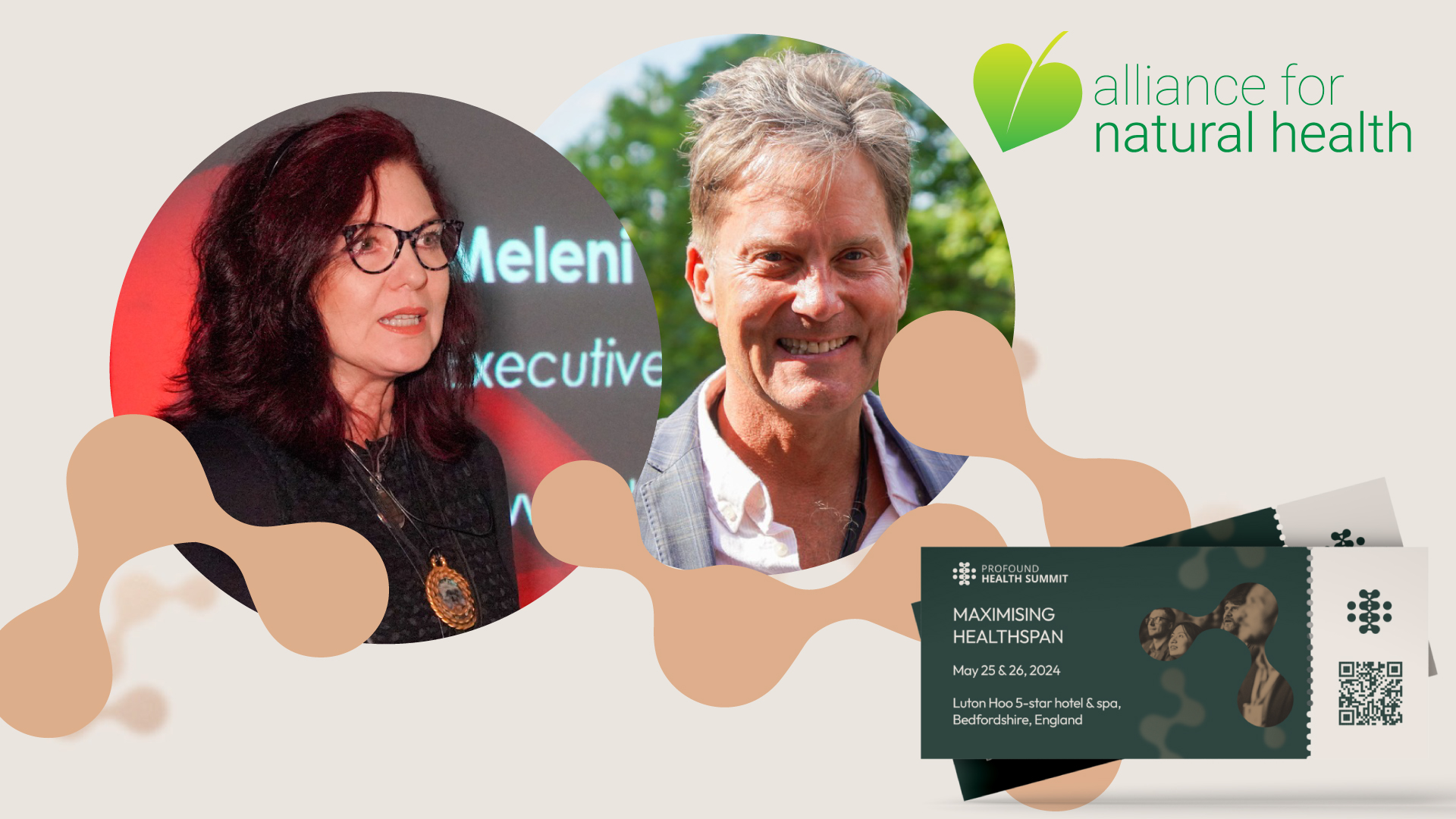

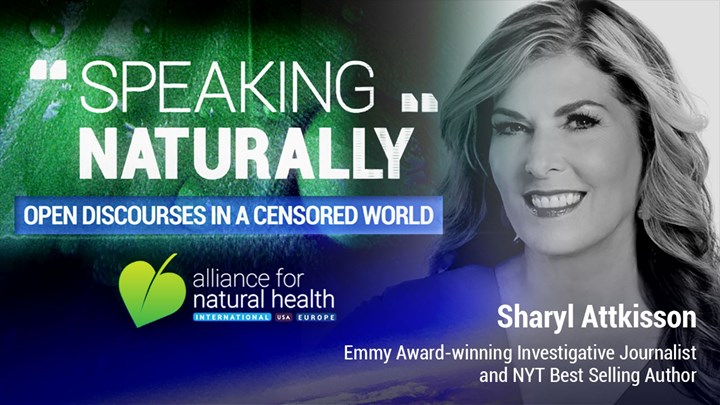

Comments
your voice counts
01 June 2024 at 2:03 pm
I am 91, wonder if is a bit late to expect miacles, but IM going to give peptides a go anyway Love M
07 July 2024 at 11:49 am
I have used Curaderm for many years both on myself and on my patients. It works wonderfully well!
Your voice counts
We welcome your comments and are very interested in your point of view, but we ask that you keep them relevant to the article, that they be civil and without commercial links. All comments are moderated prior to being published. We reserve the right to edit or not publish comments that we consider abusive or offensive.
There is extra content here from a third party provider. You will be unable to see this content unless you agree to allow Content Cookies. Cookie Preferences